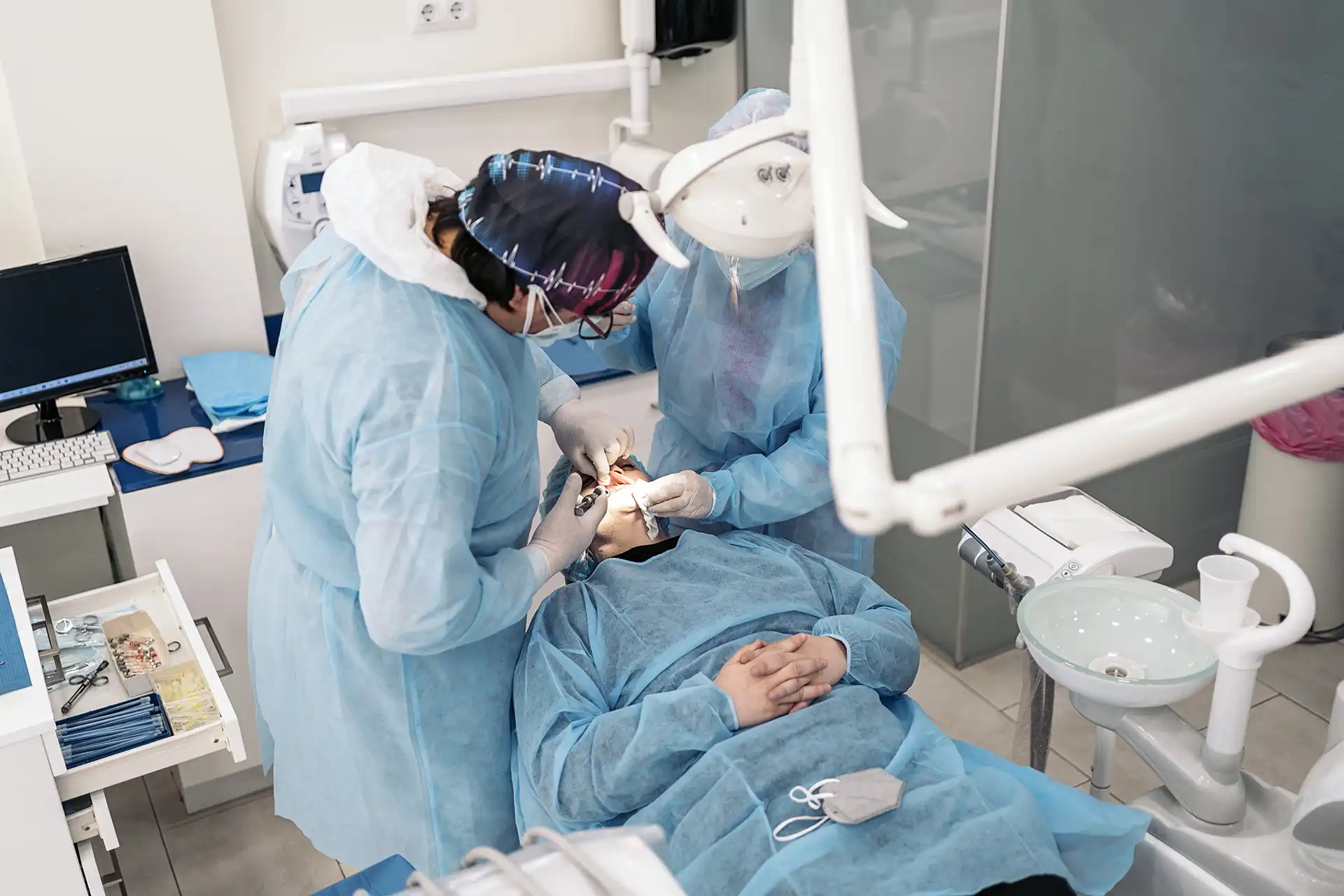Dental implant pain: How painful is a dental implant?
Dental implant pain: How painful is a dental implant?
Dental implant is a powerful method for replacing missing teeth. While pain at the implant site is minimal, some amount of discomfort may be expected in the days following the operation. This article will cover various factors influencing pain after dental implant and means to control it.
Dental implant is a powerful method for replacing missing teeth. While pain at the implant site is minimal, some amount of discomfort may be expected in the days following the operation. This article will cover various factors influencing pain after dental implant and means to control it.
Table of contents:
- Is a dental implant painful?
- How long does dental implant pain last?
- How painful is getting a tooth implant?
- Pain after dental implant : How to relieve pain from dental implant?
- What are the reasons of throbbing pain after dental implant procedure?
- What if you have dental implant pain after 3 weeks?
- What if you have dental implant pain years later or months later?
Is a dental implant painful?
No, dental implant surgery is not painful. It is done under local anesthesia, and that means you won’t feel any pain during the surgery because the area will be numb. However, after the anesthesia wears off, you may experience some discomfort or pain mostly near the location of the dental implant. This is normal and can easily be managed using over-the-counter pain medication.
Read More: Dental implant in Turkey
How long does dental implant pain last?
Pain experienced after the dental implant procedure will normally last for 3-5 days. Painkillers can handle any pain which might result from this process depending on the complexity of the procedure and individual responses. Generally, the patient can be back to normal activities as early as the following day so long as they are comfortable.
How painful is getting a tooth implant?
Because getting a dental implant requires surgery, it is obvious that there will be pain to some extent. But modern dental techniques and anesthesia have crossed out pain from the list. Which is more painful, tooth extraction or implant? a question that several prospective implanters are likely to ask :
In fact, more people experience somewhat less pain and swelling after an implant surgery compared to a tooth extraction. This phenomenon is attributable to the precise dental surgical techniques and the technological advancements that have been made in the dental field over the years.
Pain after dental implant : How to relieve pain from dental implant?
To manage and reduce pain administrate the following steps after dental implant surgery:
-
Medication: The dentist prescribed pain medications for the next few days following the treatment. Make sure to follow such instructions carefully. Pain can also be managed by consuming general painkillers like ibuprofen or acetaminophen, along with the prescribed painkillers by the dentist.
-
Ice Packs: Apply ice packs to the area; it will decrease swelling and ease the pain. Wrap some ice in cloth and apply for 15-20 minutes at a time. You can practice it several times a day.
-
Soft Foods: Strictly, take soft food like soups, mashed potatoes, and curd for not exerting any pressure on the surgical site.
-
Rest: Resting and avoiding strenuous activity can help your body heal more quickly.
-
Good Oral Hygiene: Brush gently and use a mouthwash as directed by your dentist to keep the area clean. Avoid rinsing vigorously or using mouthwash with alcohol.
If you experience severe pain, bleeding, or other concerning symptoms, contact your dentist immediately.
What are the reasons of throbbing pain after dental implant procedure?
Throbbing pain is not normal to stay with you long after this dental implant procedure, though you may experience somewhat acute pain a few hours later since the anesthesia wears off, but this should respond to pain medication and time.
If you experience such pain, you should be assessed by the oral surgeon or dentist immediately.
Here are some potential reasons of throbbing pain after dental implant procedure:
-
An incision line opening
It is one of the complications following an implant procedure. It occurs when the tissue around the rod reopens after surgery.
If the incision opens, you may feel some pain or irritation. Your oral surgeon may prescribe mouth rinses with chlorhexidine, a few times daily, or an antibiotic to prevent an infection.
-
Improperly fitted implant
The pain may be an indicator that the implant is not fusing with the bone as it should. Eventually, it may have to be removed, and possibly reattached at a later time.
-
Infection
Infection is when bacteria get into the surgically impacted tissue and do not allow it to heal. It may reopen or not heal at the site of the wound.
What if you have dental implant pain after 3 weeks?
If you continue to experience dental implant pain after 2-3 weeks , it's always best to reach out to your dentist or oral surgeon. Extended duration of pain may point towards underlying causes like an infection or implant failure.
As with most cases, prompt evaluation, and treatment are highly important in preventing further complications and in also ensuring that the outcome is positive. Therefore, do not think twice about seeking a professional opinion if you have any doubts about your post-implant recovery.
What if you have dental implant pain years later or months later?
If you have pain in the dental implants and around the site months or years after the procedure, it is likely implant failure or peri-implant disease.
Although generally successful, dental implants might be associated with complications. Pain elicited by pressing or tapping the implant site may suggest the following clinical attachment loss related to implants. Other conditions associated with implants include visible mobility of the implant, bone loss around the implant, inflammation or swelling, and problems in a crown or other reconstruction on an implant.
If any of these symptoms are noted, it is important to consult your dentist or oral surgeon for a thorough evaluation and subsequent treatment.
Sources:
Fill it out to get your free consultation
Innovation & Precision In Every Implant
We use only reputable, high-quality implants designed for long-term durability
BioTec Dental Implants


Hiossen Dental Implants


Straumann Dental Implants


Nobel Biocare Dental Implants


MegaGen Dental Implants








